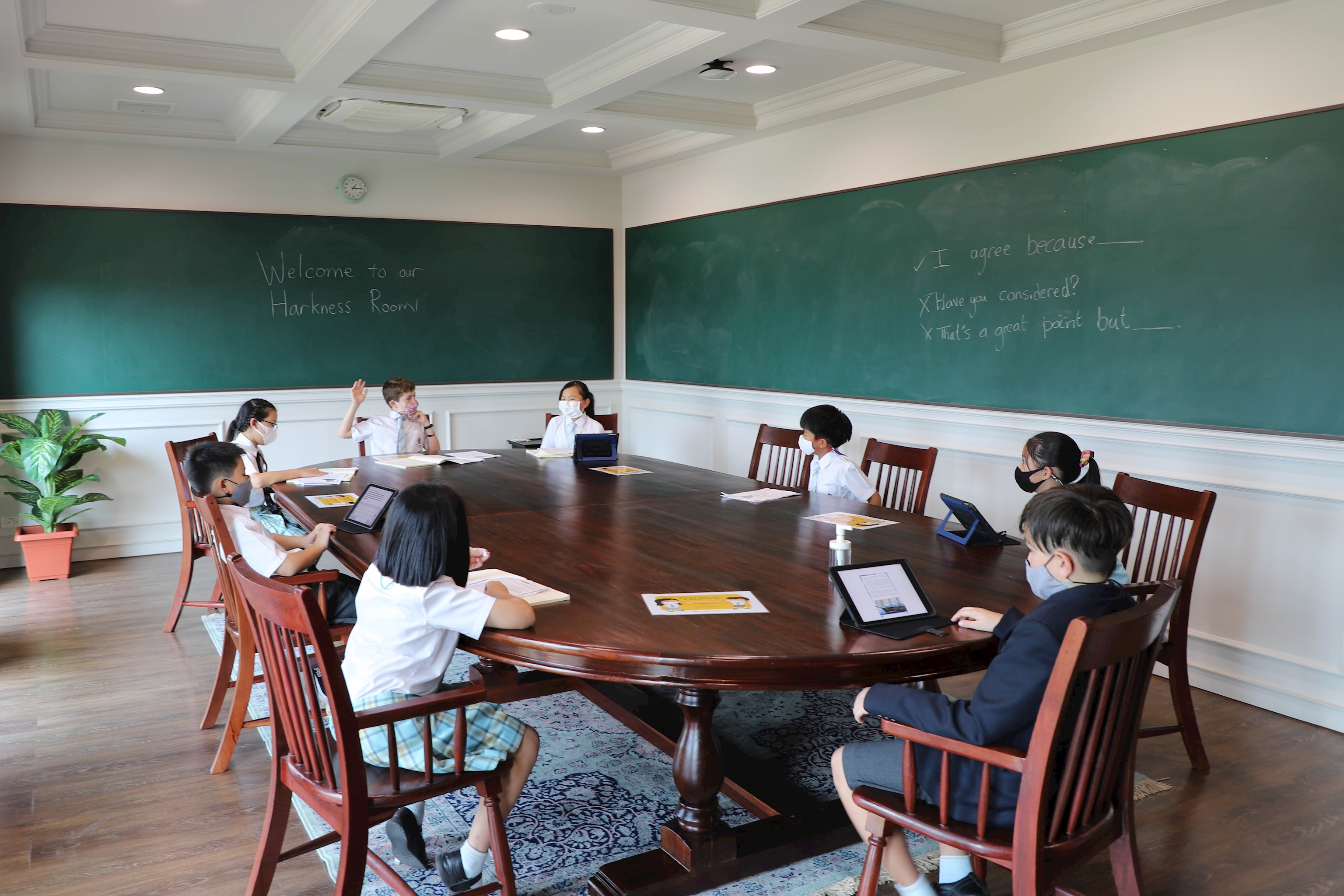
Brought to Bangkok from Wellington College in the UK, the Harkness Method is adapted for our teaching and learning context and applied in a way which enables our students to thrive both in and out of the classroom, setting them up for university, and the corporate world of high-level business communication and decision-making.

Harkness discussion requires that students learn how to pose questions, provide answers and evaluate ideas. In order for a Harkness lesson to be successful, students need to have encountered the topic already: it is important that knowledge and some level of comprehension have already occurred, therefore preparation before entering a Harkness lesson is fundamental to ensuring a successful learning outcome.
Although teacher control of the discussion is not desirable, the teacher can play a part in the process (or not, as preferred). Here is a simple guide to the sort of input that is likely to be constructive in these discussions:
• Elaborate and clarify
• Support ideas with evidence
• Paraphrase
• Build on others’ comments and ideas
• Challenge ideas
• Synthesise what has been discussed
Preparation for Harkness discussion is very important. Rigorous thinking involves the application of reason as well as a healthy respect for evidence; personal prior knowledge is much less important than the ability to produce and engage with evidence. So finding evidence and bringing it to the table is very valuable. The participants should not be simply saying the first thing that comes to mind – Harkness is not a ‘brainstorm’.
A good Harkness discussion will ignite students’ interest, allow them to advance their understanding and develop their confidence to speak and engage with each other as equals. It should go without saying that this sort of activity has very powerful impact on learning.
Silence can be a key element of a Harkness discussion. People often need time to think (eg analyse, synthesise or evaluate) so pauses when no-one is talking should not be treated as dead time or embarrassing moments.
Twelve may be the ideal number of participants; it is important that everyone has opportunity to contribute. Over time, a group becoming adept at Harkness should learn to self-regulate so that the more talkative learners do not dominate and quieter students do not shrink from attention.
At Wellington, our Year 5 students are already gaining invaluable experience of Harkness learning. This experience is then cultivated in the Senior School so that by the time they go to university, there are significantly ahead of their undergraduate peers in this regard.
To find out more about Harkness teaching and learning at Wellington, schedule a meeting with our Admissions Team today.


%201.png&command_2=resize&height_2=85)

